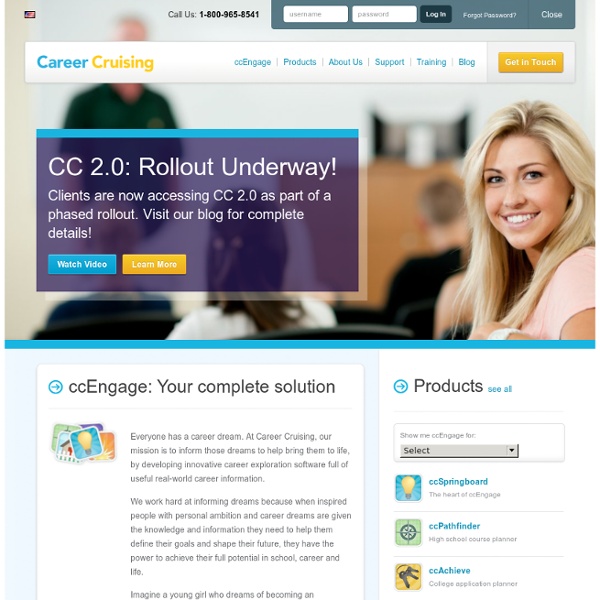Career Cruising

AgEdNet.com - a service of Stewart-Peterson, Inc.
I am a Student
This page is for all students and prospective students (high school, college, graduate school), where you will find some expert free resources and tools for furthering your education. Students have been one of the primary priorities of Quintessential Careers since our founding in 1996, and we have a large number of resources, tools, and articles to assist you in achieving your educational goals. Pursuing an education is a great way to advance your career goals and quality of life. Are you a middle-school or high-school student planning to attend college? We have the tools to assist you in... Are you a teen or college student who is seeking to gain work experience -- or a job at graduation? Are you a college student or graduate considering a grad school and a graduate degree? Are you a student considering other forms of education, such as a certificate program or distance learning offering? Career and Job-Hunting Blog: Quintessential Careers Blog for Job-Seekers and Careerists
Bringing Careers into Focus
Welcome to CareerSighted! Our 3-minute videos showcase a wide variety of careers, each one featuring a real person (not an actor) who really loves his/her career. It’s like a virtual career day! When you create an account and log in, you can save a list of your favorite careers, interact with friends, and more! Start with the videos below, or choose a category. Publicist Carpenter Screenwriter/Novelist Composer City Clerk Distributor Relations Manager Rotator powered by <strong>EasyRotator for WordPress</strong>, a free and easy jQuery slider builder from DWUser.com.
Don't Buy It . Advertising Tricks
Come play again later! Come play again tomorrow!
Related:
Related:



